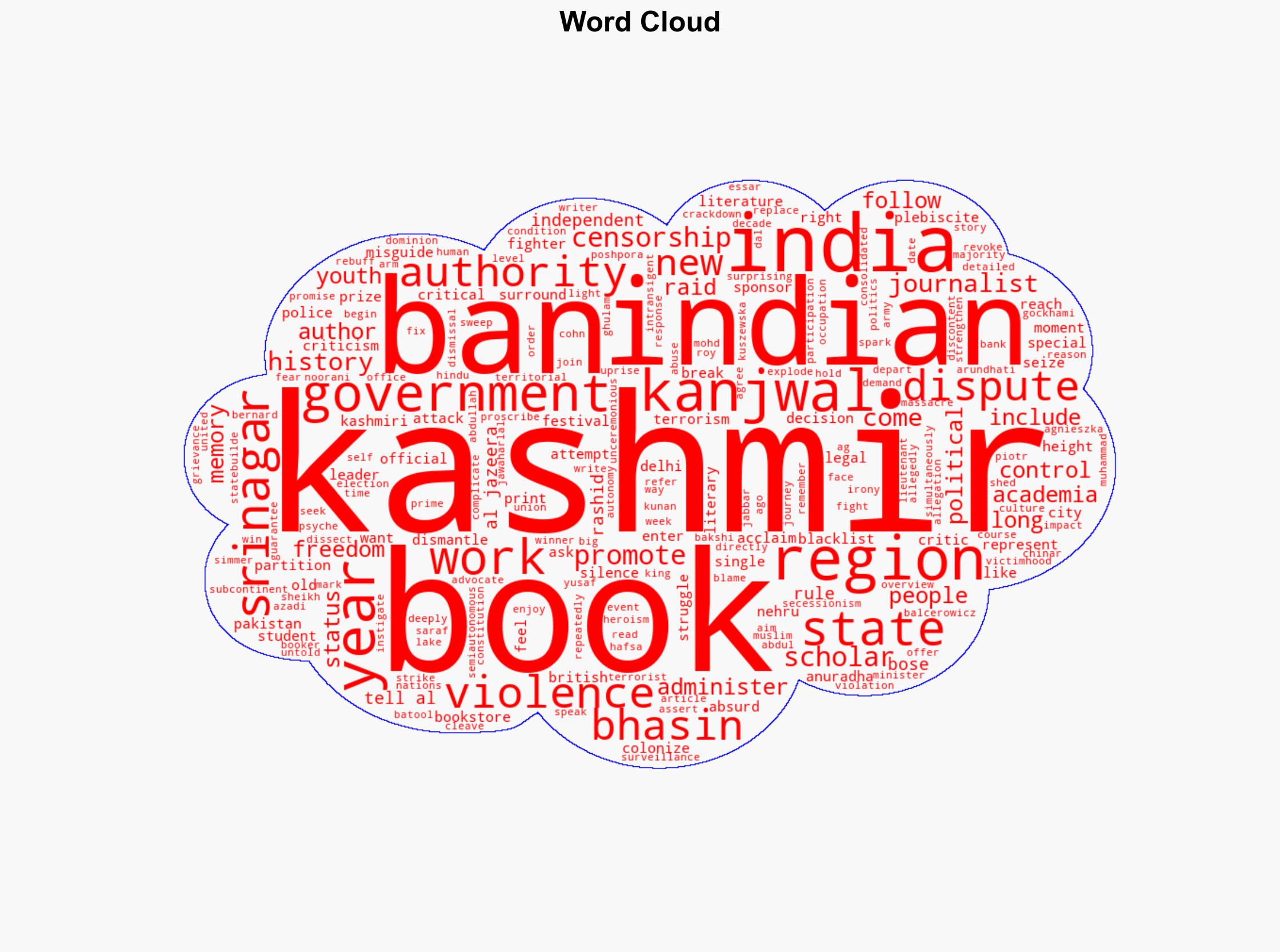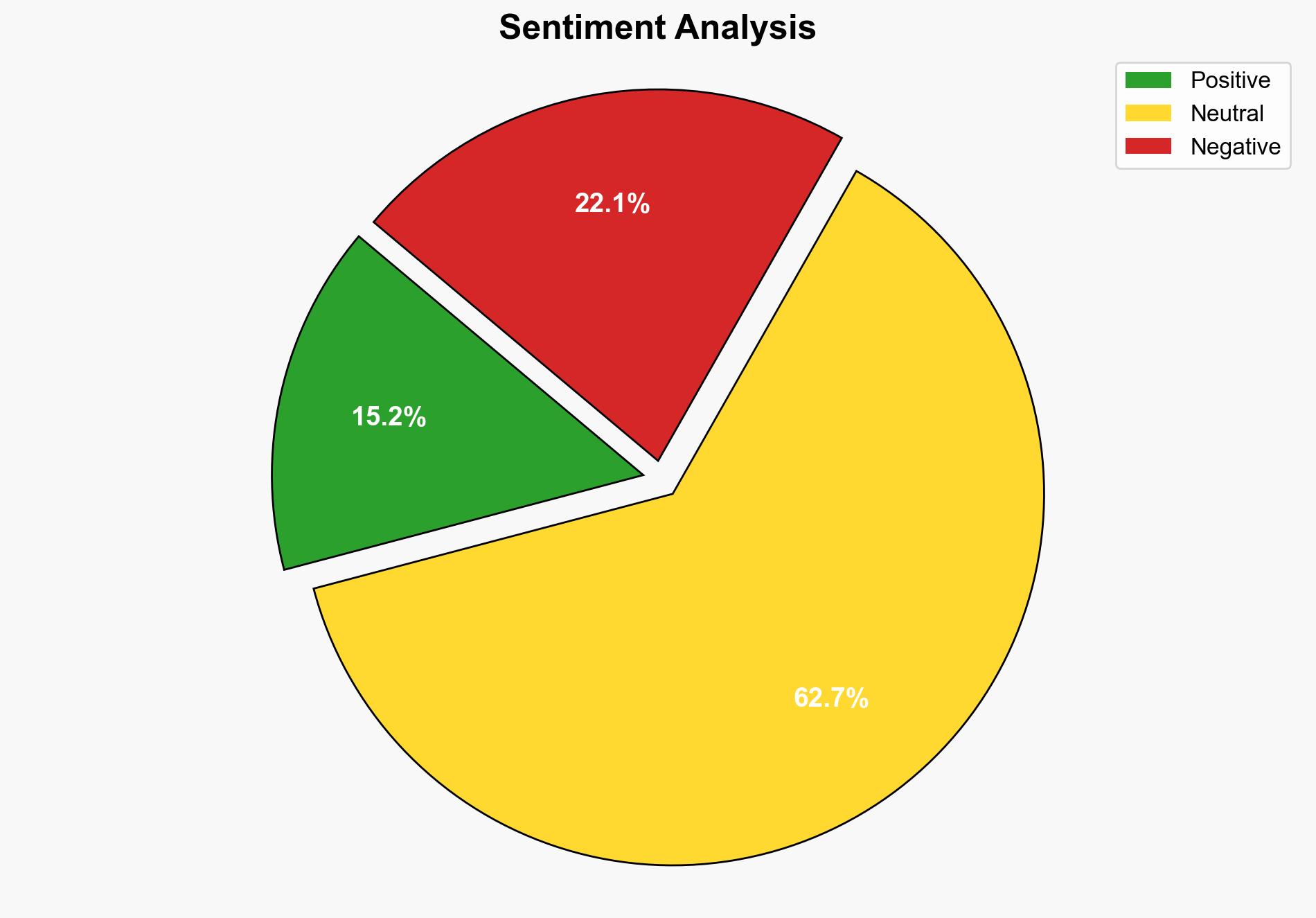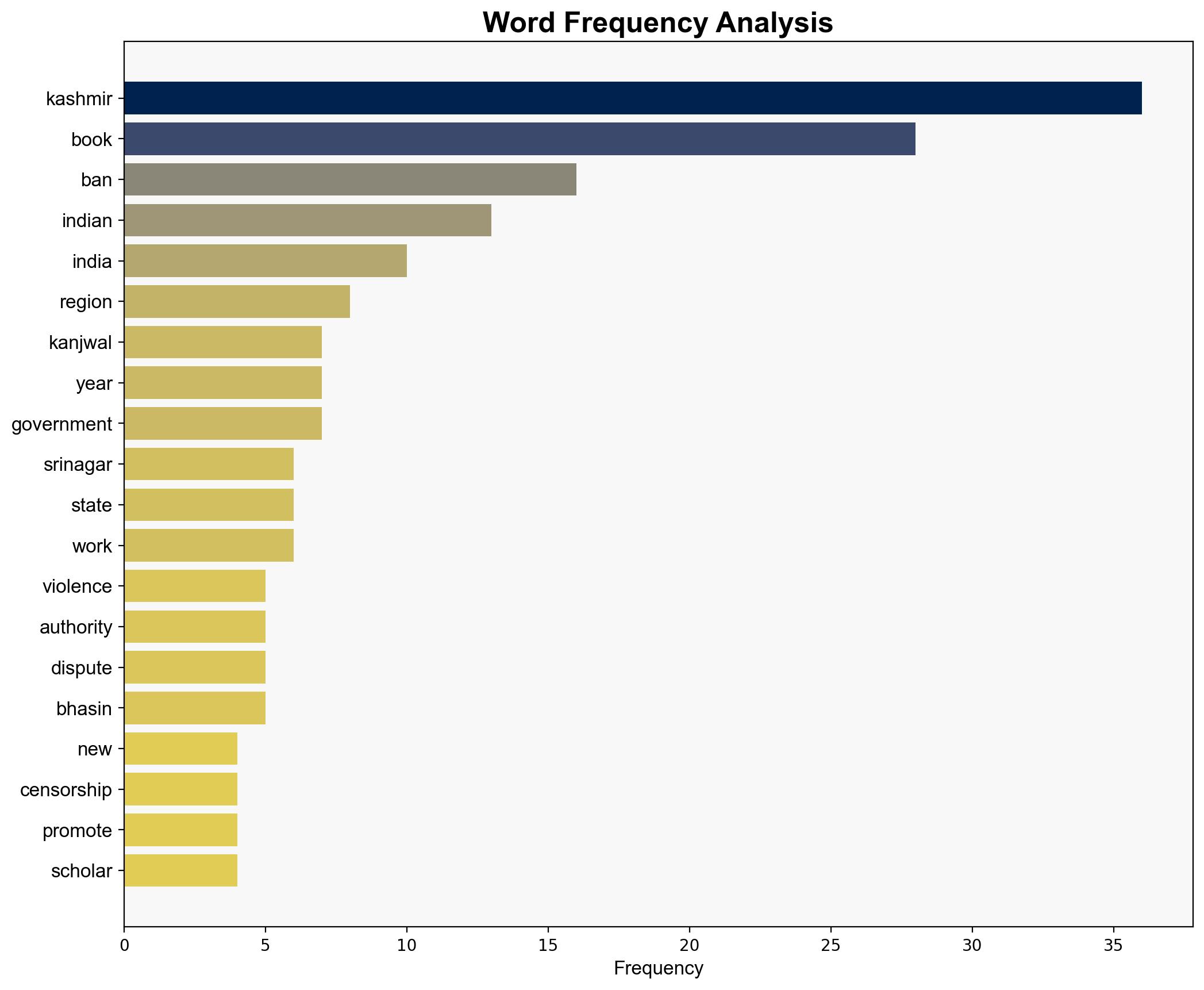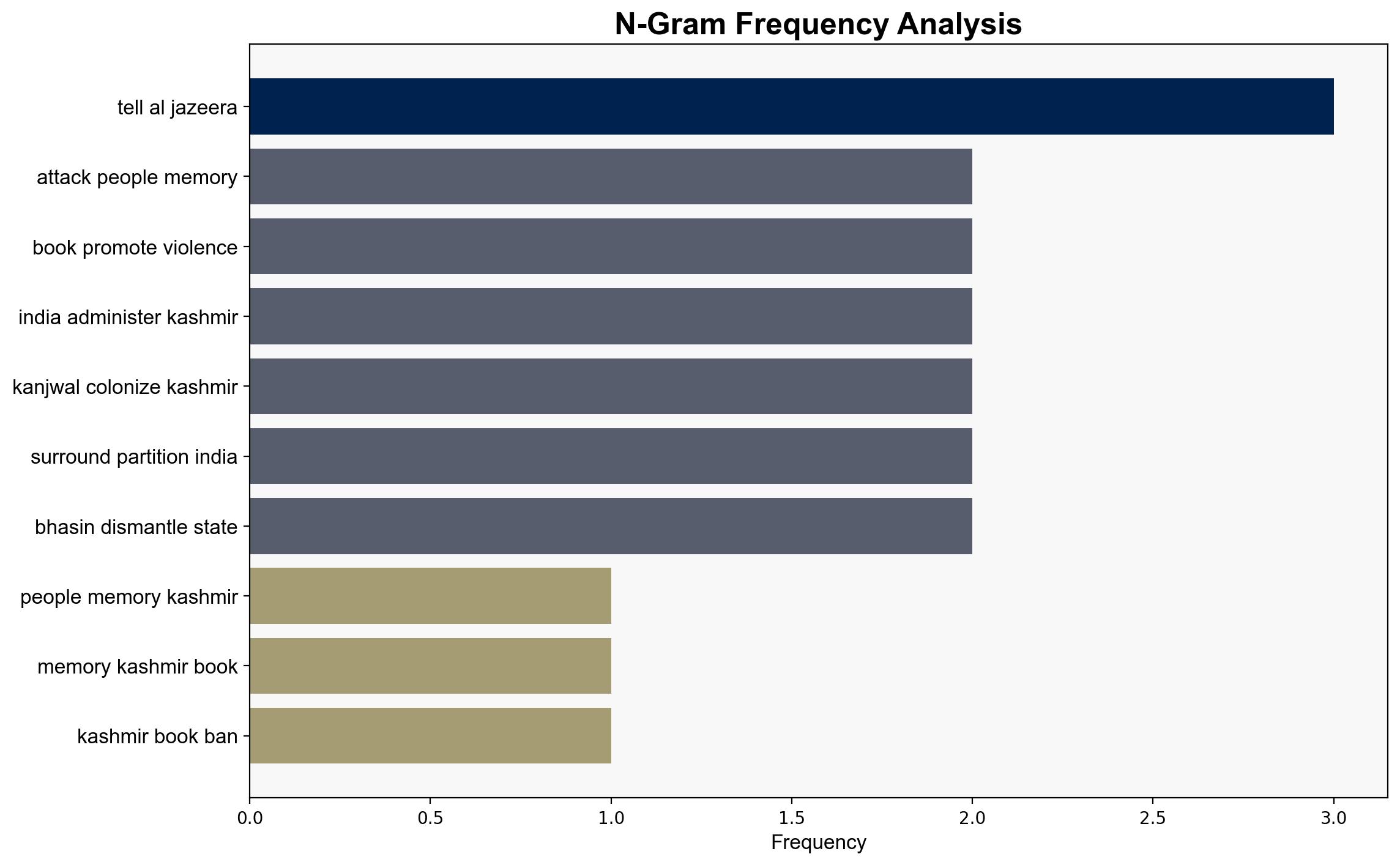Attack on peoples memory Kashmirs book ban sparks new censorship fears – Al Jazeera English
Published on: 2025-08-09
Intelligence Report: Attack on Peoples’ Memory – Kashmir’s Book Ban Sparks New Censorship Fears
1. BLUF (Bottom Line Up Front)
The strategic judgment is that the book ban in Kashmir is primarily a political maneuver to suppress dissent and control the narrative regarding Kashmir’s contentious history and current status. This hypothesis is supported by the pattern of censorship and the targeting of works critical of the Indian government’s actions in Kashmir. Confidence level: High. Recommended action: Monitor further censorship activities and engage in diplomatic dialogue to address concerns over freedom of expression.
2. Competing Hypotheses
1. **Political Control Hypothesis**: The book ban is a deliberate strategy by the Indian government to suppress dissent and control the narrative in Kashmir, particularly following the revocation of its semi-autonomous status. This is supported by the targeting of books critical of the government and historical accounts that challenge the official narrative.
2. **Security Justification Hypothesis**: The ban is primarily motivated by security concerns, aiming to prevent the dissemination of materials that could incite violence or secessionist sentiments among the youth in Kashmir. This is supported by the government’s claims that the books misguide youth and promote terrorism.
3. Key Assumptions and Red Flags
– **Assumptions**: The Political Control Hypothesis assumes that the primary intent is narrative control rather than genuine security concerns. The Security Justification Hypothesis assumes that the books have a direct impact on inciting violence.
– **Red Flags**: The lack of transparency and specific evidence from the government regarding how these books incite violence raises questions. The simultaneous promotion of state-sponsored literature suggests a selective approach to censorship.
4. Implications and Strategic Risks
– **Geopolitical Risks**: Continued censorship could exacerbate tensions in Kashmir, potentially leading to increased unrest and international criticism.
– **Psychological Impact**: Suppression of academic freedom may lead to increased radicalization as individuals seek alternative narratives.
– **Cascading Threats**: Escalation of censorship could lead to broader crackdowns on freedom of expression across India, affecting its democratic image.
5. Recommendations and Outlook
- Engage in diplomatic efforts to encourage transparency and dialogue on freedom of expression in Kashmir.
- Monitor for further censorship activities and their impact on regional stability.
- Scenario Projections:
- Best Case: Relaxation of censorship and increased dialogue lead to improved stability.
- Worst Case: Intensified censorship results in heightened unrest and international condemnation.
- Most Likely: Continued selective censorship with periodic unrest and international scrutiny.
6. Key Individuals and Entities
– Hafsa Kanjwal: Author of one of the banned books.
– Arundhati Roy: Author whose works are critical of the government.
– Piotr Balcerowicz and Agnieszka Kuszewska: Authors of works on human rights in Kashmir.
7. Thematic Tags
national security threats, censorship, regional focus, freedom of expression




